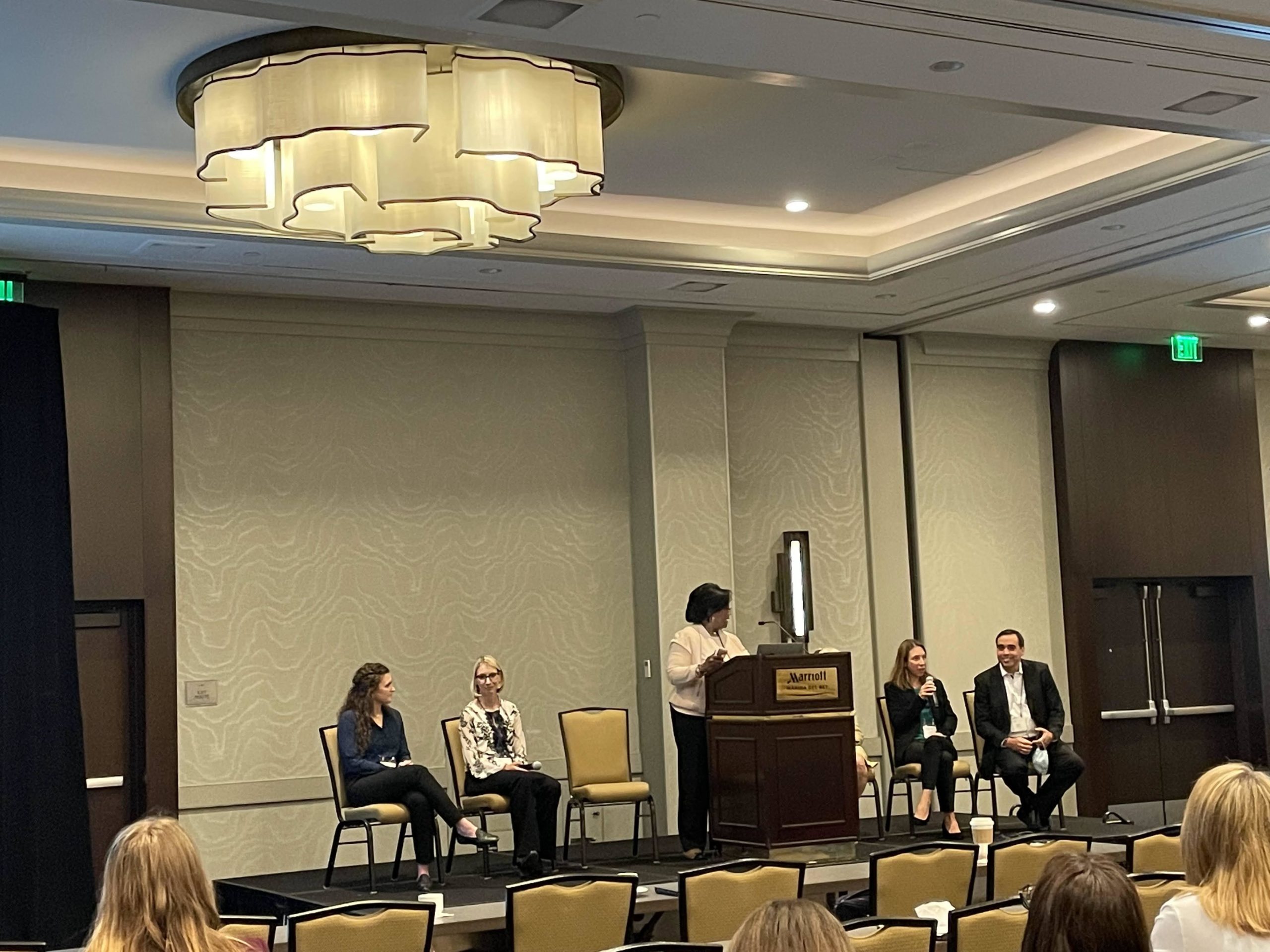The Organization for the Study of Sex Differences (OSSD) hosted its Annual Meeting in May 2022, covering the most recent advances in research and policy regarding sex differences in health and disease. OSSD was establish was 2006 by the Society for Women’s Health Research (SWHR) and became an independent organization in 2012. OSSD’s goals are to facilitate interdisciplinary research in, advance understandings of, encourage new applications for, and generally promote the field of sex and gender differences research.
During the opening remarks, OSSD President Dr. Rhonda Voskuhl called the meeting special because of how it gathers sex differences experts who span the health space, from development to aging to many disease states. “This is important because it means we can cross-fertilize findings from one disease to another, and you don’t always get that opportunity at disease-specific meetings,” Dr. Voskuhl said.
OSSD gave out its annual awards at the meeting, including the NIH and FDA-sponsored Travel Awards, ORWH Policy Travel Awards, and Florence Haseltine Poster Awards, among others. See the full list of awardees here.
This year’s meeting covered topics from autism and diabetes to COVID-19 treatment and outcomes. Included here are just a few of many important presentation takeaways:
- The keynote address was given by Dr. Barbara Stranger, Associate Professor at Northwestern University Feinberg School of Medicine, titled “Sex Differences at the Molecular Level: Lessons from the Human Transcriptome.” She and her team use statistical genetics to perform integrative data analysis to uncover the biology underlying complex traits, researching the role of sex as a biological variable (SABV) as they do. “SABV is not only about women’s health, it’s about everybody’s health,” Dr. Stranger said in her presentation.
- Dr. Simon Baron-Cohen, from the Departments of Psychology and Psychiatry University of Cambridge and Fellow at Trinity College, Cambridge, gave the meeting’s capstone lecture, titled “The Prenatal Sex Steroid Theory of Autism”. When studying the causes of autism, “we have to look at genetics but also prenatal sex steroids hormones and prenatal brain development,” Dr. Baron-Cohen said.
- In a session on SABV, Dr. Jill Becker, Professor of Psychology and Research Professor at the Molecular and Behavioral Neuroscience Institute at University of Michigan and editor-in-chief of the Biology Sex Differences journal, showed how many types of behaviors show quantitative differences in sex, beyond a bimodal distribution, in her presentation of “Sex Differences in Addiction.”
- During the “Sex Differences in Cardiovascular Health’’ session, Dr. Puja K. Mehta from the Emory Women’s Heart Center discussed diabetes risk in women compared to men, noting that there are sex differences in the impact of traditional risks factors of diabetes and obesity for cardiovascular disease. “We need sex-specific research to understand these sex differences,” Dr. Mehta added.
- At a session on “Sex Differences in COVID-19-Related Outcomes,” researchers explored progesterone use in men with severe COVID-19 and the rates of post COVID syndrome in women, among other topics. Dr. Katelyn Bruno, Assistant Professor at Mayo Clinic, and her team found while studying convalescent plasma use that donor sex has an effect on recipient mortality, with a female donor giving plasma to a female recipient presenting the lowest mortality in their data. Dr. Sofia Ahmed from the Cumming School of Medicine at the University of Calgary called for a “gender transformative pandemic response strategy” in her presentation, accounting for the wellbeing of those on the pandemic frontlines, many of whom are women.
The National Institutes of Health (NIH)’s Office of Research on Women’s Health (ORWH) also spoke during the meeting, presenting research from one of their Science Policy Scholar Travel Award winners and sharing insights from its Specialized Centers of Research Excellence (SCORE) on Sex Differences program.
Laura Pritschet from University of California, Santa Barbara was one of this year’s ORWH Science Policy Scholar Travel Award recipients and presented on “The Scientific Body of Knowledge – Whose Body Does It Serve? Factoring Women’s Health into Human Brain Imaging”. Her research found sex hormones are critical neuromodulators that deserve attention in both sexes.
“We’re still playing catch up to a reality where women and women’s health is not prioritized. Moving forward, large scale data collection efforts should incorporate reproductive health information, and organizations like NIH should continue offering special funding calls that prioritize women’s health research,” Pritschet said.
SCORE is the only NIH Centers Program that supports disease-agnostic research on sex differences, helping to develop standards to consider SABV across the research continuum, Dr. Chyren Hunter, Associate Director for the Basic and Translational Research Program at ORWH shared. “We know women have been understudied, and SABV is a way to bridge that gap. What we’re interested in here at NIH is rigorous research,” Dr. Hunter said.
“Without complete data, we won’t get to individualized medicine for women as well as men. With the study if women’s health and the study of sex difference together, we will all get there.”
Learn more about OSSD here and read the latest articles from OSSD’s official journal, Biology of Sex Differences, here.
